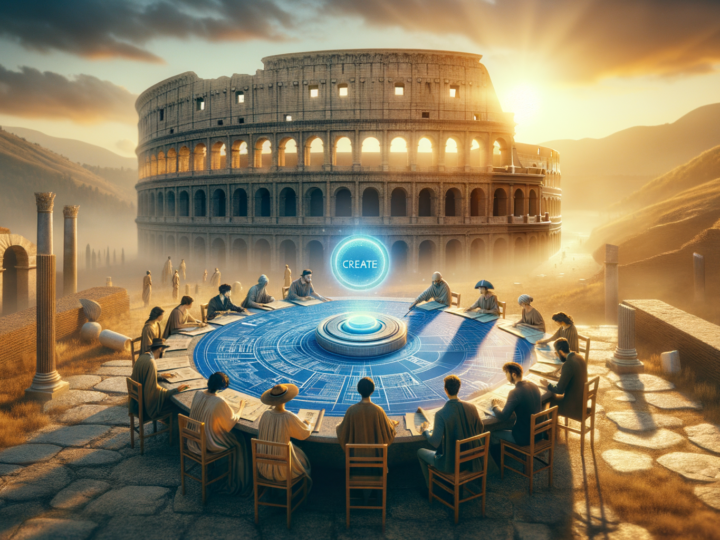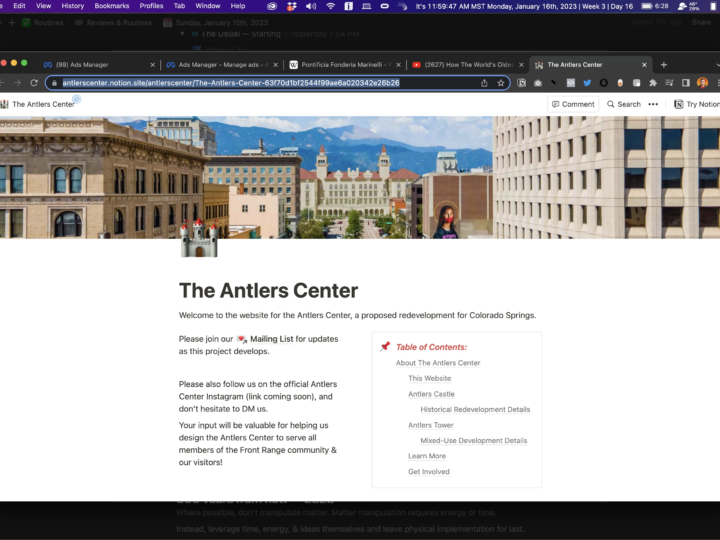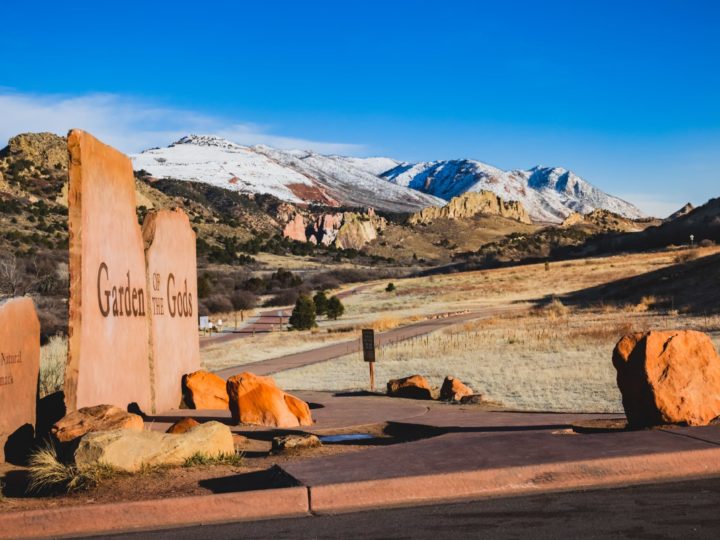Creating Blue Zones: My notes on eating, working, and enjoying time together to promote long term health
A few related ideas have been connecting for me over the past few days, I wanted to take a moment to write them down as a single coherent thought. Here are the three core ideas I’d like to weave together:
I watched the program “Live to 100: The Secrets of the Blue Zones” on Netflix with my folks recently. I took little notes on each episode (there are only four episodes in total, under an hour each). Blue Zones are places on earth where people regularly live to be 100+, so the show is about what they do differently than other communities. I took notes to try to piece together my own understanding of what works to create communities like this, in hopes of having a small Blue Zone I could be apart of.
Second, I’ve read “The Art of Gathering” by Priya Parker some time ago, and have been drawn back to it recently. The concept of Blue Zones reminds me of her work a lot.
Finally, lately in my own life I’ve been meditating on how trust works, and how our systems of incentives in software make trust easier or harder as we work together online. How do we want software we interact with to work on our behalf? I think there are elements of those learnings that belong in a post about healthy lifespan, as well, strange as that may sound. I think a healthy blue zone community is a kind of root system, and is applicable as a metaphor to how we might want social media to work someday.
What kind of tools do we really want to build and use in order to automate what can be automated, but keep our minds and bodies healthy and active, too?
Let’s try to weave these concepts together today: Living a long life, doing such meaningful work that it enhances rather than detracts from our health, and living this way well within our communities.
How do we care for ourselves so well that those around us feel supported and cared for even more so because of our commitment to our own health?
Daily Practice
The themes I’ll cover below as I write about what I’ve learned are simple, and they come directly from the final episode of the Blue Zones program. I encourage you to watch it even after reading this, because seeing how these principles are put into practice daily by people around the world is really inspiring.
These are the four core principles (expressed daily in 3 different ways each) that the longest lived people on the planet practice constantly as a part of their regular routine:
- Move Naturally
A. Work with your hands
B. Garden
C. Walk Often - Maintain A Long Term Outlook
A. Always Unwind After Work
B. Have Faith
C. Practice Your Purpose - Eat Mindfully
A. Primarily Plant-Based
B. Wine or Tea Daily
C. Moderation: 80% Full - Connect Constantly
A. Remember & Care Daily for Elders
B. Enjoy Partnership
C. Be Present With People You Aspire To
Episodes
Below you’ll find my notes on each episode, you can skim through these or read them in full, at the end I’ve pulled in lessons from each of them into a proposed daily routine for myself, expressed as a set of principles.
Episode 1
Okinawa, Japan
- food is medicine
- low calorie density
- primarily plant based proteins
- stop eating when you’re 80% full
- balance
- stretching daily
- floor furniture!!!
- Moai: pool your money, work together
- find your life’s purpose and don’t retire
Episode 2
Sardenia, Italy
- walk uphill
- eat sourdough
- and other slow carbs you love
- transmit serenity to the people you care for
- surround yourself with people to care for and with
- revere your elders
- have problems (and in this case, sheep, since they are shepherds) that you know how to work with.
Loma Linda, California
- stay active, pickleball
- in communities that are hospitals and churches
- volunteer & lift things
- nutrition!
- low iron diet, no meat, fish
- showing up
- in any community
- be around people who have the health you want to have at the age you want to have it
Episode 3
Ikaria, Greece
-
Dementia – we choose to remember each other so we don’t forget each other
-
Locally grown honey! – first near the coast, then later in the season higher altitude
-
Be open to love! – true love can find you at any time
-
natural wine – no chemicals added, with a Mediterranean meal increases the anti-oxidants absorbed
-
dance often – party with friends 🙂 exercise shouldn’t be hard
Nicoya, Puerto Rico
-
Plan De Vida – life purpose. long term goals
-
Engineer physical activity back into your life: chop wood, ground corn, etc. Do chores, or hit the gym.
-
Enjoy your friends, get work done early, never do extra work when you can make time for friends, make time for things that matter! always!!!
-
Check in on your elders regularly, it keeps them healthy and feeling alive!
-
Beans!! (lol) corn cooked the way they do breaks down complex carbohydrates, niacin controls cholesterol. black beans contain fiber and anti-oxidants. squash has all the vitamins and minerals needed. Teach the kids to want whole foods.
Episode 4
Singapore
-
Principles are policy, policy is practice: They phrase this as: “Implementation is policy, policy is implementation.”
-
Incentives Matter: Live close to your loved ones
-
Workout with your community and walk to transit
-
Create visual clues for health: healthy choice options at restaurants, incentivize healthier options at the grocery store with subsidies. Build incentives for each other.
-
Create a system that can work together for the greater good, both at an individual incentive level, but also at many government levels.
Putting It All Together
The message I took away most from the Blue Zones program, and the way I see it resonating with The Art of Gathering, is that long term health is less about taking perfect care of yourself, and more about talking imperfect daily care of the as many people around you as you are able by expressing yourself genuinely and having fun.
Play games, host parties, go on walks, and so forth. Don’t overthink it. Just be present and make time for friends.
This sort of independence-by-way-of-care is not intuitive to most people in the US, I don’t think. Here we are often intensely independent and told to be self sufficient from a young age, both in school and at work.
Living in a small circle of opt-in co-dependance with others lifts the individual burden of the entire community in a way no one person could do on their own.
The wonderful aspect of all the communities I noticed is something that Priya talks about at length in her book as well: The host of a given community holds a lot of responsibility as the Master of Ceremonies, and so what you see in blue zones is the constant reliance on small local communities to hand off the “MC” roll to different people every day. This creates a kind of root system rather than a single leader.
Take for example the concept of Moai in Okinawa, or the way people care for their elders in Sardinia. The noticeable theme is that there is a community of people present for each individual person, rather than an individual person being the leader of a community.
This idea of literal community service creates a sort of upside down heirarchy of shared care and responsibility, where each individual is never the sole carrier of all the pressure, instead, any pressure an individual faces is shared by the entire community.
I’ll refer to this inverted structure as a rooted community. Often in western culture we celebrate the trunk of the tree so to speak, overlooking its roots. But what makes greatness possible is a strong root system below AND a strong set of branches above. And the healthiest communities take this shape too.
Making time to end work as early as you are able, then then to spend that time being present for your friends, and taking time to inspire and encourage each other daily seems to be the single routine that matters most.
Personal Application
I’ve been a goal setter to the point of over-doing it for my whole life. I love to set goals, and I’m often surprised at how quickly they come true once I write them down.
But I have been a disaster when it comes to keeping routines that have to do with others. I struggle with recurring commitments, I often fail to be a good host or even participant in communities I volunteer in. I get super easily overwhelmed by the thought of so much as putting a cheese board together for a party.
My takeaway from this program is that my role in my communities is to play to my strengths.
I am fastidiously organized, I’m very good with technology, I can often think through how something should be automated in a way that the people around me comment feels like magic. If I found a way to express that kind of service to those around me daily, I’d be a much more active, peaceful, and thoughtful contributor to the communities around me.
So rather than trying to set deadlines and goals for my communities I serve going forward, I’m going to focus on daily practices.
I have great luck with daily practices in my own life, related to my own self-management. As someone who is very easily distracted I always have to make lists.
But now I’m going to try making daily, weekly, and monthly practices not just for myself, and not just 1-on-1 for friends, but most importantly for the communities I serve.
How can I show up on a daily basis for DATA Creators who want to build cool automations on our discord?
How can I show up for my friends I love keeping up with, and play VR mini golf or go on walks on a regular basis with them?
How can I show up for my parents several times a week since they live close by and be sure we stay in touch with each other as the weeks of adulthood begin to fly by?
These are the questions I’ll be trying to answer this year, and instead of setting goals, I’ll be practicing each day.
Principles as Guidelines
One of the more meaningful things I’ve learned (the hard way) recently is that principles are essentially a list of agreements you will break when faced with a difficult or impossible situation outside your control. Principles are lists of agreements in the order you will break them. As I understand it, this is the reason many people talk so much about the importance of explicitly knowing your principles.
It’s useful to think of principles this way because life often doesn’t go as planned, so principles are the anti-fragile commitments you make with yourself about which agreements you will negotiate first. Trust is about knowing we’re in communities with people who will show up every day even when the going gets tough.
Before I took the time to meditate on this Blue Zones program and consider how I might make changes to my own life to put it into practice, I think I had a set of principles that looked roughly like:
- Take good care of myself so I can take good care of others
- Be thoughtful, kind, courageous
- Work as hard as I can towards my goals each day
This, as you may imagine, worked some of the time. But the moment life got hard, these stacked principles created a cascading set of failures that resulted in a lot of overwork, and not much effective self-care.
My new principles as I try to apply the wisdom from this program to practice a kind of blue-zone-compatible lifestyle with the people around me, looks instead like:
- Work means showing up in my chosen communities each day
- Progress means discussing goals, blockers, and hopes for today’s work
- Success isn’t about the checklist. When you feel like your work is done, finish early in the day, relax with friends
Even just the first words of each of these new princples read more like actual principles than goals now. They’re less “me me me.” Rather than “Take, Be, Work” we have “Work, Progress, Success.” Good stuff.
My hope is that this new way of thinking about how I show up each day will give those around me more opportunities to be tree roots for each other and build a collaborative flywheel of trust each day. I hope I will show up in a new way, without being burned out or feeling bad when I miss a few days. I’m sure this is still a very imperfect approach, but I hope it’s better. Instead of talking about what I need to be these principles are now about what I need to do each day. They feel much more in my control.
And in that way they feel so much more approachable. I think it was Hemingway who was famous for saying you should stop in the middle of your work so you know where to start tomorrow. These new principles will help me think about today’s work as something interruptible that will come together in the fullness of time as I’m able to show up for it, rather than a goal I need to chase. I hope some day soon people who use DATA will notice that it’s a software tool that helps them discover and practice principles like these as they choose how to show up for their various online and offline communities.
Closing thoughts on trust in ourselves and in the future
One of the toughest parts about being a builder, aiming to create a life you love, is that you often come face to face with the fact that you tried and failed.
We all experience this in different ways from time to time, but for me it shows up in a fear that what I’m building will be more of a hinderance to people than a tool that they love using. I know this isn’t real, but it still comes up often.
As I leave you with these thoughts, I wanted to suggest a video for further study on the topic of trust, communities, and how we heal and support each other in a way that gives health and sustains life.
I came across this video recently, and it talks very plainly and concretely in just a few minutes right in the middle about the kinds of stuff we can do each day to take good care of our health. I’ve heard recently that depression is more tied to gut bacteria health than any other indicator, and so I’m taking this advice in my own life as a challenge to eat better and work out more often.
In this video, the retired MIT Neurosurgeon who goes by “Goobie” on his youtube channel talks about a simple list of things people can do to stay healthy each day, and discusses how by doing this it often healed the people he was going to operate on before he could operate on them!.
Notice how similar these are to 1-4 above: Move Naturally, Maintain a Long Term Outlook, Eat Mindfully, and Connect Constantly.
- Maintain a Low Salt Diet
- Eat Veggies, Grains, and Beans
- Eat Mostly Plant Based, Not Many Animal Foods
- Regularly Do Things That Make You Sweat
- Don’t Smoke or Drink Much
- Have Good Social Support
- Socialize Regularly
- Get 8 Hours of Sleep A Day
- If you have a stressful job, be mindful to release your stress back to the universe regularly.
It’s spooky to me how similar this former doctor’s advice is to the advice of 105-year-olds around the world. I think there’s something to this, so I’m doing to make it a part of my daily life, and I hope organizing it all here has inspired you to perhaps do the same. No wonder his video got 11 million views within a week or two of posting!
By trusting ourselves each day to maintain a healthy lifestyle I think we can redirect any fears into productive practice.
What’s Next For Me…
A few weeks ago on Twitter I announced I’d be changing routines around my work on DATA.
I think some people interpreted that as “Steve won’t be working on DATA as much” when what I meant to say is that I’ll be working on DATA differently.
I hope this post detailed how I will be working differently to great a sustainable long term trajectory for what I consider my life’s work. I will continue, of course, to be hilariously goal oriented. And I’ll continue building systems that are, too, but as I do I’ll keep in mind how those tools can help re-enforce life-giving routines like the ones expressed in my new principles for daily work above.
So perhaps someday DATA will help Creators show up fully in their communities by encouraging thoughtful sharing of principles like these that enhance our health and our ability to serve those we love.
And on the personal side, I’ll still keep up my tradition of setting annual goals, but I’ll go about implementing my daily routines with a new mindset focused around having already arrived each day, and around practicing these principles rather than checking off a list of to-dos. My hope is that my renewed focus on daily service in my chosen communities, with my chosen family will guide my work going forward. I’m sure I will have more learnings to post here as time goes on.




